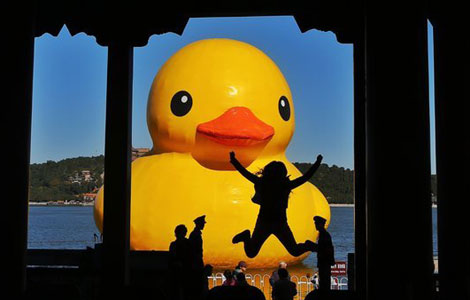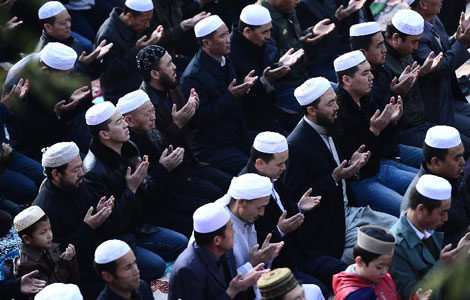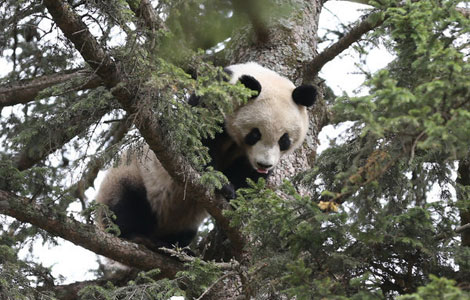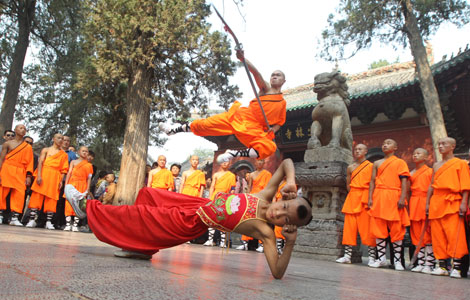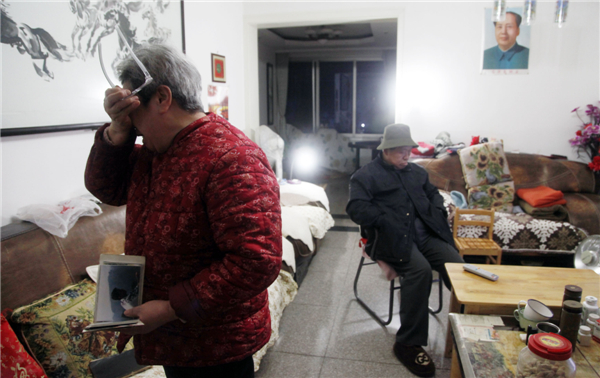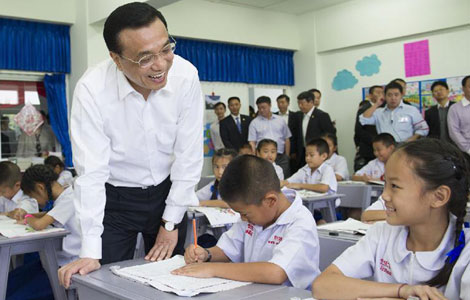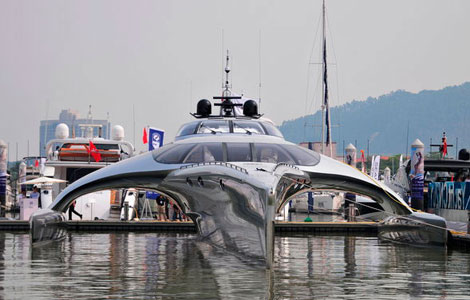

Event a test for official dialogue between mainland and Taiwan
Scholars and former government officials from the mainland and Taiwan gathered in Shanghai on Friday to discuss political and security issues, a move seen as the first test for an official political dialogue across the Straits.
|
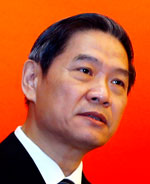 |
|
Zhang Zhijun, minister of the State Council’s Taiwan Affairs Office |
Analysts said the forum could provide some clues to tackle the political impasse for decades.
"Some political disputes can be shelved, but it is impossible to avoid them totally and for a long time," Zhang Zhijun, minister of the Taiwan affairs office of the state council, said in his speech at the forum, adding "Cross-Straits relationships cannot depend only on economic dialogue."
By tackling easy things first and difficult things later, both sides should make breakthroughs in issues hampering cross-Straits relationship, Zhang said.
He also stressed that no matter how big the political disparity is, both sides should seek solutions under the One-China framework, which he described as the bottom line.
Zhou Zhihuai, executive vice-president of the National Society on Taiwan Studies, said the time is ripe to discuss the signing of a peace agreement.
Cheng Siwei, president of the National Society of Taiwan Studies, the forum's mainland organizer, said that holding such a large and professional political dialogue is a new starting point in cross-Straits relations.
The mainland and Taiwan reached a consensus that both would give their own explanation on the view that "both sides across the Straits adhere to the One-China principle", known as the 1992 Consensus.
"The consensus could not solve all the difficult political issues across the Straits. Now we should use wisdom, reason and professionalism to tackle the issues," said Kao Yu-jen, president of Taiwan's 21st Century Foundation, the Taiwan organizer of the forum.
"This forum is a test to see if both sides could set up a mechanism for political dialogue," said Shaw Chong-hai, a professor with China Culture University in Taiwan.
Zhang, the mainland's top official on Taiwan affairs, said: "It is conducive for experts and scholars to take the initiative to exchange ideas because authorities across the Taiwan Straits have not entered political negotiations," he said.
The former head of Taiwan's defense department, mainland affairs department, and academics will hold private sessions to discuss specific issues, including cross-Straits political status, interaction rules for non-governmental institutions in external affairs, the meaning and content of a peace agreement and ways to carry it out, a military security confidence-building mechanism, and cooperation in maritime security and non-conventional security fields.
Cross-Straits relations have been improving since Ma Ying-jeou became Taiwan's leader in 2008. Both sides have been pushing forward communications and cooperation in economy, trade, education and culture.
But political issues including how to define the cross-Straits status and military security confidence building have been too sensitive to be touched upon. This forum is considered to be a trial in dialogue for both sides.
The two-day event is being attended by about 120 experts and scholars, with about 60 from each side.
